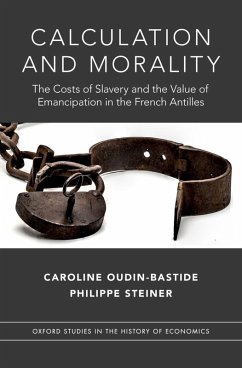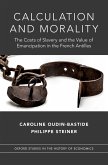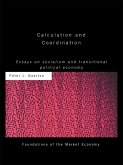Debates about whether to maintain or abolish slavery revolved around two key values: the morality of enslaving other human beings and the economic benefits and costs of slavery as compared to free labor. Various and conflicting arguments were presented by abolitionists, colonists, and administrators in slave-holding societies, all of whom used calculations about the relative cost and productivity of slavery to defend their own point of view in an impassioned debate. In
Calculation and Morality, Caroline Oudin-Bastide and Philippe Steiner consider how economic calculations, estimations, and arguments informed the long debate over French slavery between 1771 and 1848. They show how calculation was introduced into moral debate and became a critical social object in regard both to its consistency and its manifest effects. To do so they trace a process in which phenomena were classified into groups, becoming a category, and then how metrics and calculations were used to analyze the possible effects of emancipating slaves in French colonies. Abolitionists sought to demonstrate that it was in the interest of slaveowners and/or the entire nation to employ free labour in the colonies, and to show the irrationality of the colonial and metropolitan defenders of servitude; their aim was to enlighten various parties as to their real interest, and how that real interest coincided with justice. In turn, colonists accused those opposed to slavery of being blinded by their own philanthropic principles and insisted on the rationality of the slave system as the only means of meeting the interests of everyone, including slaves, at least in the short and medium term. Oudin-Bastide and Steiner closely examine the positions and reasoning of such influential French thinkers as Pierre Samuel Du Pont de Nemours, Anne Robert Jacques Turgot, Antoine Nicolas de Condorcet, Simonde de Sismondi, Jean Baptiste Say, and Alexis de Tocqueville. In doing so they shed light on the interaction of moral precepts and econonomic calculations in a trenchant study in the history of ideas.
Dieser Download kann aus rechtlichen Gründen nur mit Rechnungsadresse in A, B, BG, CY, CZ, D, DK, EW, E, FIN, F, GR, HR, H, IRL, I, LT, L, LR, M, NL, PL, P, R, S, SLO, SK ausgeliefert werden.









